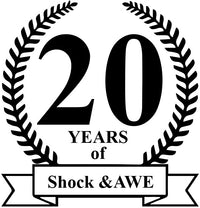03:33
Continued from A1...
Flynt was embroiled in many legal battles regarding the regulation of pornography and free speech within the United States, especially attacking the Miller v. California (1973) obscenity exception to the First Amendment. He was first prosecuted on obscenity and organized crime charges in Cincinnati in 1976 by Simon Leis, who headed a local anti-pornography committee. He was given a sentence of 7–25 years in prison, but served only six days in jail; the sentence was overturned on appeal following allegations of prosecutorial misconduct, as well as judicial and jury bias. One argument resulting from this case was reviewed by the U.S. Supreme Court in 1981. Flynt made an appearance in a feature film based on the trial, The People vs. Larry Flynt (1996), playing the judge who sentenced him in the case.
Outraged by a derogatory cartoon published in Hustler in 1976, Kathy Keeton, then girlfriend of Penthouse publisher Bob Guccione, filed a libel suit against Flynt in Ohio. Her lawsuit was dismissed because she had missed the deadline under the statute of limitations. She then filed a new lawsuit in New Hampshire, where Hustler's sales were very small. The question of whether she could sue there reached the U.S. Supreme Court in 1983, with Flynt losing the case. This case is occasionally reviewed today in first-year law school Civil Procedure courses, due to its implications regarding personal jurisdiction over a defendant.
During the proceedings in Keeton v. Hustler Magazine, Flynt reportedly shouted "Fuck this court!" and called the justices "nothing but eight assholes and a token cunt" (referring to Justice Sandra Day O'Connor). Chief Justice Warren E. Burger had him arrested for contempt of court, but the charge was later dismissed.
In 1988, Flynt won a Supreme Court decision, Hustler Magazine v. Falwell, after being sued by Reverend Jerry Falwell in 1983, over an offensive ad parody in Hustler that suggested that Falwell's first sexual encounter was with his mother in an outhouse. Falwell sued Flynt, citing "emotional distress" caused by the ad. The decision clarified that public figures cannot recover damages for "intentional infliction of emotional distress" based on parodies. After Falwell's death, Flynt said despite their differences, he and Falwell had become friends over the years, adding, "I always appreciated his sincerity even though I knew what he was selling and he knew what I was selling."
As a result of a sting operation in April 1998, Flynt was charged with a number of obscenity-related offenses concerning the sale of sex videos to a youth in a Cincinnati adult store he owned. In a plea agreement in 1999, LFP, Inc. (Flynt's corporate holdings group) pleaded guilty to two counts of pandering obscenity and agreed to stop selling adult videos in Cincinnati.
In June 2003, prosecutors in Hamilton County, Ohio, attempted to revive criminal charges of pandering obscene material against Flynt and his brother Jimmy Flynt, charging that they had violated the 1999 agreement. Flynt said that he no longer had an interest in the Hustler Shops and that prosecutors had no basis for the lawsuit.
